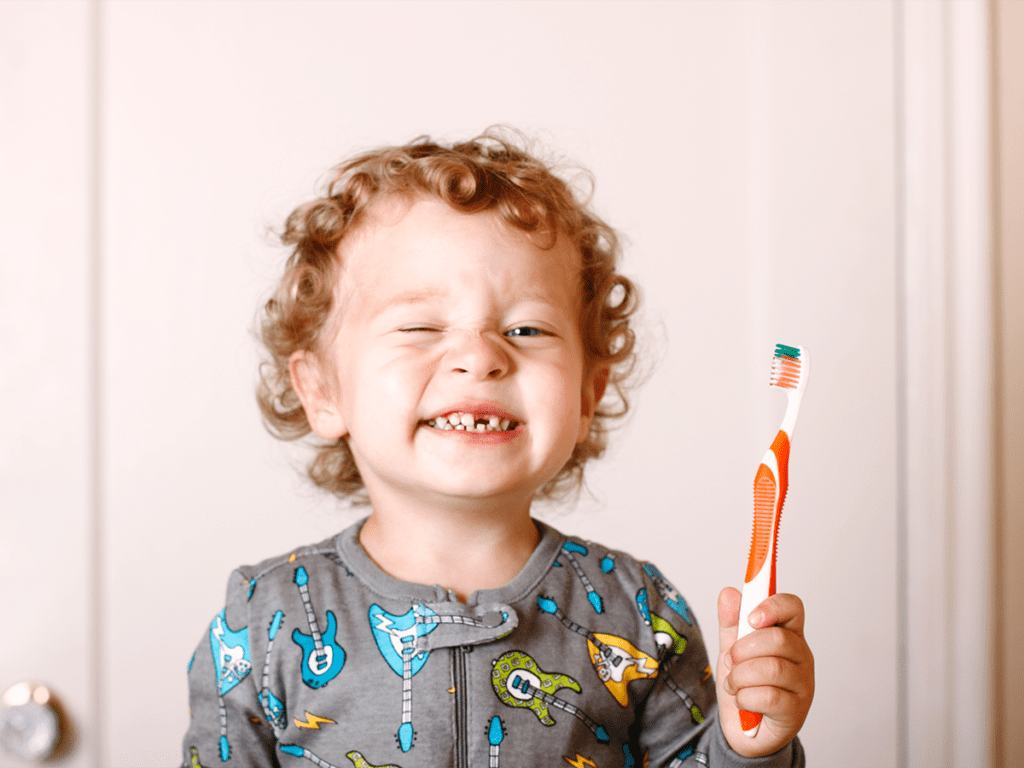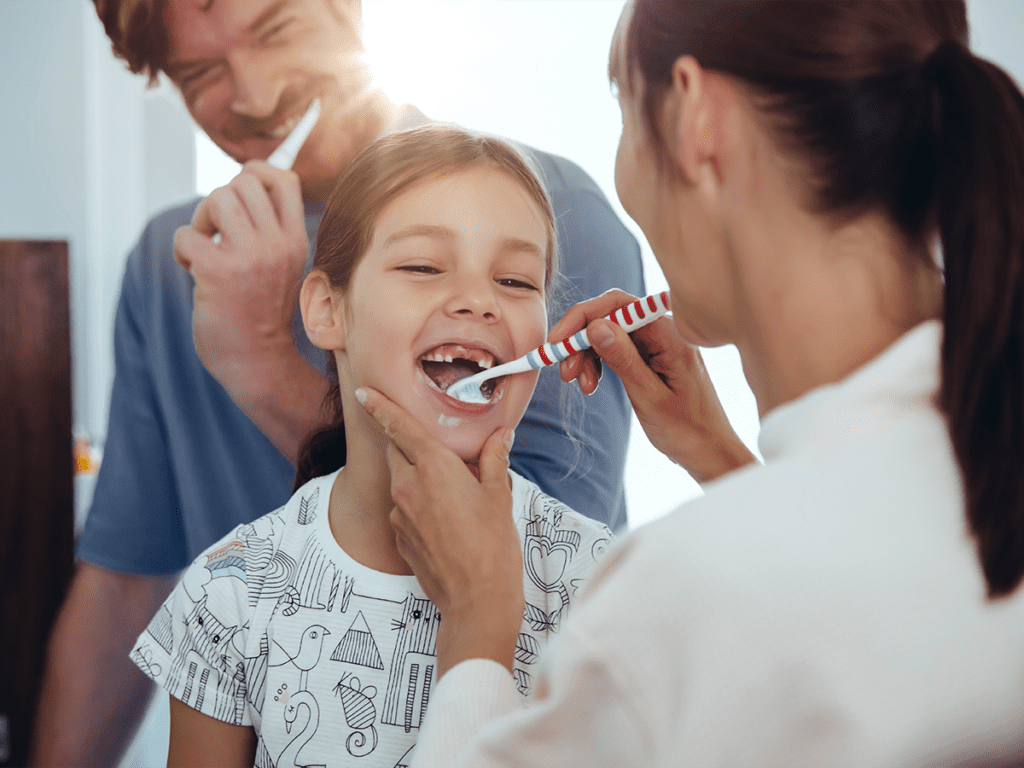Comprehensive Guide to Children’s Dentistry
Children’s dentistry, also known as paediatric dental care is essential for maintaining your child’s dental health throughout their younger years, adolescence and adulthood. Children require specialist help to prevent issues such as cavities, gum disease and other dental problems. Here’s what to expect during a children’s dental appointment at Robertson Dental Innovations.
Why is dental care necessary for children?
Our paediatric dentists are trained to handle children’s unique needs, including preventative care, diagnosis and treatment of dental conditions. Our dentists create a kid-friendly environment, so your little ones feel comfortable during their dental treatments at Robertson Dental Innovations.
We work collaboratively with families to treat dental issues that are usually only present in children, such as early childhood caries, thumb-sucking habits, and the management of dental trauma.
Early and consistent dental care is essential for maintaining the long-term dental health of your children. Let us help you maintain your children’s healthy smiles in the short term and the long term.
Early dental visits – when is the right time to start
Your child’s first dental visit should occur when the child turns one or when their first tooth appears. Early dental check-ups will help prevent any potential problems and allow our dentists to observe the teeth and gums fully so they can monitor for future changes and issues. Regular and consistent dental visits can help children become more comfortable with dental care and will help reduce anxiety at future visits.

Dental care tips for children
It’s important to take the time to create a family dental health routine that includes brushing and flossing once your child has teeth that touch. Parents should encourage children to brush twice daily with fluoride toothpaste and floss daily. You can ask any of our dentists at Robertson Dental Innovations to demonstrate the correct technique at your next appointment.
Preventing tooth decay and gum disease
With children’s dentistry we focus on preventative care such as fluoride treatments and dental sealants to protect against gum disease and cavities. We recommend avoiding sugary and acidic foods for children as they may contribute to tooth decay. Regular visits are ideal so our dentists can monitor any issues before they escalate.

What to expect during your child’s first dental visit
We don’t want a visit to the dentist to cause your child anxiety. Knowing what to expect can help every member of your family feel calm and confident visiting us at Robertson Dental Innovations.
Preparing your child
Talk to your child about what will happen during their visit. Keep the tone upbeat, positive and reassuring. Reading books or watching videos about visiting the dentist can also help ease anxiety about their upcoming visit. Try to book your appointment for a time when your child is likely to be well-rested, fed, hydrated and in a good mood – this can assist in the success of a trip to our practice.
What happens during the appointment
During the first visit, the dentist will examine your child’s teeth, gums and jaw. They may also clean and apply fluoride to strengthen the enamel. You can take this opportunity to talk to your dentist about any issues or concerns regarding your child’s dental health.
Tips for easing anxiety
Some children may be worried about their trip to the dentist. It might be a good idea to bring your child’s toy or comforter to the appointment. Try using lots of positive language and praising your child for being brave.

Dental Milestones
Baby teeth care and eruption
Baby teeth are also known as primary teeth, and they typically start erupting when your baby is six months old. These teeth are crucial to your child’s development and are big players in speech development, chewing and forming the scaffolding for when permanent teeth set in. Be sure to clean your baby’s teeth every day with a soft toothbrush. If your baby is under 17 months old, don’t use toothpaste. If your baby is over 18 months (about 1 and a half years) old use a low fluoride toothpaste (500ppm). Baby teeth care is essential to your child’s future oral health.


Transition to permanent teeth
Around the age of six children start losing their baby teeth and permanent teeth start to push their way through. This transition period can last until the early teenage years. Regular visits to Robertson Dental Innovations are essential to monitor the development of permanent teeth and address any alignment or spacing issues.
Common dental problems in children and how to avoid them
Cavities and tooth decay
Cavities can be a common issue with young children, so it’s important they see a children’s dentist regularly. They occur when plaque builds up on their young teeth and produces acids that erode the enamel. Limiting sugary snacks and drinks and encouraging daily brushing and flossing is the best way to keep your child’s smile in good condition between dentist visits.
Gum Disease
Gum disease (or gingivitis) can develop in young children if plaque is not removed through proper brushing and flossing. Symptoms include red, swollen gums that may bleed when brushed. Regular dental check-ups and a good at-home dental routine can go a long way in preventing gum disease in children.
Thumb sucking
Thumb sucking is a natural reflex for some infants and although this habit can temporarily get everyone a little more sleep there is a downside. Prolonged thumb sucking can affect the alignment of your child’s teeth and jaw. If your child continues to suck their thumb beyond the age of four you should discuss with your dentist a plan for helping your child break the habit.

Maintaining your child’s oral health
Brushing and flossing techniques
Spend some time teaching your child how to brush each surface of their teeth—the front and the back. Use a soft-bristled brush appropriate for their age. Set a timer for 2 minutes and encourage your child to use the full two minutes to brush. This prevents them from rushing and doing it poorly. When your child’s teeth start to touch, teach your child to gently floss in the evenings to clear away the day’s debris.
Diet and dental health
A balanced diet of fruit, vegetables, and dairy will support your child’s dental health. Limit sugary snacks, juice, soft drinks, and energy drinks, as they contribute to tooth decay. Encourage your child to drink plenty of water, especially after meals, to rinse away leftover food.
Encouraging healthy habits at home
Try to make dental hygiene fun! Let your child choose their toothbrush and toothpaste. Perhaps you could use a reward system to encourage consistent brushing and flossing. Setting a good example yourself can also motivate your child.

Costs and waiting periods
Depending on the type of treatment, children’s dentistry may involve out-of-pocket costs. Routine check-ups and cleanings are generally affordable, while more specialised care can be more costly. Contact us at Robertson Dental Innovations to discuss your payment, insurance, and rebate options.
Are there waiting periods for coverage?
Some dental insurance plans have waiting periods before certain children’s dental services are covered. Check your coverage to see any waiting periods for paediatric dental care.
Frequently Asked Questions
Schedule an Appointment for Your Child at Robertson Dental Innovations today.
Book an appointment with one of our paediatric dentists to set your child on a positive path to long-lasting dental care.

